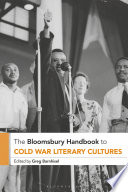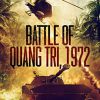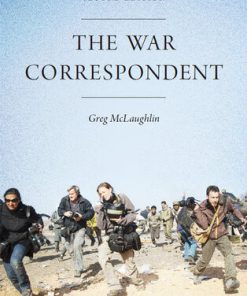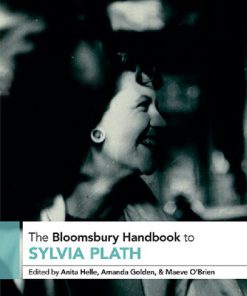The Bloomsbury Handbook to Cold War Literary Cultures 1st Edition by Greg Barnhisel 9781350191730 1350191736
$50.00 Original price was: $50.00.$25.00Current price is: $25.00.
The Bloomsbury Handbook to Cold War Literary Cultures 1st Edition Greg Barnhisel – Ebook Instant Download/Delivery ISBN(s): 9781350191730, 1350191736

Product details:
- ISBN 10:1350191736
- ISBN 13:9781350191730
- Author: Greg Barnhisel 9781350191730 1350191736
The Bloomsbury Handbook to Cold War Literary Cultures
Table contents:
Part 1 Production
Chapter One How the Communist Party Shaped Gwendolyn Brooks’s Early Writing
Brooks in the Chicago Black Popular Front
Brooks’s Early Leftist Poetry
Erasing the Left
The Evidence of the Left
Brooks’s 1951 Leftist Feminist Essay: “Why Negro Women Leave Home”
Maud Martha Roughs Up the Smooth Surfaces of Cold War Culture
Maud Martha as “Ghetto Pastoral”
Beyond the 1950s: The Left in The Bean Eaters (191)
Works Cited
Further Reading
Chapter Two The Cold War Encyclopedic Novel
Works Cited
Further Reading
Chapter Three Cold War Technology and Women Poets
Marianne Moore
Lorine Niedecker
Audre Lorde
Works Cited
Further Reading
Chapter Four The American Long Poem Evolves, 1945–90: Cold War, Hot War, (No War), Pure War
Three Cold War Long Poems, c.1962
Hot War, (No War): Vietnam and Détente
“Pure War” in the Reagan Years
Works Cited
Further Reading
Chapter Five Butler, Le Guin, and Feminist Science Fiction of the Cold War
The Collective Mind
On Eliminating Gender
Black Feminine Futurity
Works Cited
Further Reading
Chapter Six Cold War Spy Fiction: The Ethics of Fighting Fire with Fire
Ashes and Fire: The Ethical Dilemmas of Western Intelligence
Ian Fleming: In Defense of “Rough Justice”
John le Carré: The Cost of Sleeping Safely
Robert Littell: The Virtue of Doing Things Badly
Conclusion: Ideology and the Ethical Turn
Works Cited
Further Reading
Chapter Seven American Jewish Writers and the Eastern Bloc: The Dissident Generation
A Dissident Generation
That Mostly Imaginary Activity Termed Cultural Exchange
A Return to the Other Europe
Conclusion: Three Prague Stories
Works Cited
Further Reading
Chapter Eight Writing the Cold War in the American Academic Novel
Cold War Academic Fiction in Context
McCarthyism and the Problem of Freedom on Campus
Cold War Academic Fiction after McCarthyism
Works Cited
Further Reading
Part 2 Circulation
Chapter Nine Anglo-American Propaganda and the Transition from the Second World War to the Cultural Cold War
The Evolution of the Wartime Propaganda Apparatus
The Growth of Cultural Propaganda Publications in the Second World War
Continuities and Changes Between Second World War and Cold War Cultural Propaganda
Works Cited
Further Reading
Chapter Ten Book Diplomacy: Soviet–American Publishing Relations and the Moscow Book Exhibitions in the Late Cold War
Introduction
The Role of Books in Soviet and American Cultural Relations, 1947–59
Socialist and Capitalist Attempts at “Internationalizing” the Book Trade
From Exhibition to Trade Fair: Commercialization of the Soviet Book
Conclusions
Works Cited
Further Reading
Chapter Eleven Closets, Pulps, and the Gay Internationale: The “Homintern”
Queer Pulp
Mainstream Queer Literature in the 1940s and 1950s
The 1960s: Obscene, Avant-Garde, Queer
Women’s Liberation, Gay Liberation, Underground/Independent Presses
Works Cited
Further Reading
Chapter Twelve Librarians, Library Diplomacy, and the Cultural Cold War, 1950–70
Imagining the Library in the Cold War
Employing Expertise: Surveying and Building Libraries
Building Collections
Training and Exchange
USIS and British Council Libraries
Conclusion
Works Cited
Further Reading
Chapter Thirteen The Transcription Centre and the Coproduction of African Literary Culture in the 1960s
The Congress for Cultural Freedom and African Literary Culture
Broadcast Beginnings
Africa in Bloomsbury
La Guma and the Transcription Centre
Conclusion
Acknowledgments
Works Cited
Further Reading
Chapter Fourteen Creative Writing and the Cold War: Rebels with Transcripts
Works Cited
Further Reading
Chapter Fifteen How Chinese Letters Traveled to Iowa City: Hualing Nieh’s Transpacific Crossings
Before Iowa City
Mulberry and Peach
Transpacific Crossings in the 1970s
Conclusion
Works Cited
Further Reading
Chapter Sixteen William Faulkner as Cold War Cultural Ambassador: “In between propaganda and escapism”
From Reluctant Public Figure to Cold Warrior
Navigating the Cold War and Civil Rights Struggles on an International Stage
Faulkner versus Faulkner: The Cold Warrior, the Critic, and the Risks of Cultural Diplomacy
Works Cited
Further Reading
Part 3 Reception
Chapter Seventeen The Distribution and Reception of American Literature in Cold War Japan
The Impact of the Stanford–Tokyo University American Studies Seminars on the Institutionalization of American Literature
Disseminating and Translating Consensus on the American Literary Canon
The Peculiar Irony of American Literature in Postwar Japan: Becoming a Good Partner of the Victor Country
Conclusion
Works Cited
Further Reading
Chapter Eighteen Making a Literary Working Class in the Cultural Cold War: The Australasian Book Society
Worker Readers, Worker Critics, Worker Writers
General Opinion: Extra Good Book
A Cold War Reading Formation
Works Cited
Further Reading
Chapter Nineteen Anti-Apartheid Imagination, the Cold War, and African Literary Magazines
Itineraries of the Word as Anti-Apartheid Internationalism
Cold War Patronage and Genealogies of Pan-Africanism
Conclusion
Works Cited
Further Reading
Chapter Twenty Cuban Revolutionaries Read US Writers: Bohemian Mondays
The Revolution on Mondays
Adios, New York Intellectuals
Conclusion
Works Cited
Further Reading
Chapter Twenty-One Struggles for “Cultural Freedom” in Cold War India: Fostering a Critical Spirit in the Liberal Journals of the 1950s–1970s
Transnational Literary Traffic in India
Archives of Minority—Standing up to Authority, Resisting Censorship
“The Alternative Is a Critical Spirit”
Conclusion
Works Cited
Further Reading
Chapter Twenty-Two Robinson Jeffers’s Pilgrimage through the Iron Curtain: The Beloved Shepherd
The Cold War Revisited
An Average Poet and His Less Than Mediocre Translator?
Appropriating Robin
Staging the Shepherdess
Works Cited
Further Reading
Chapter Twenty-Three Reading for Freedom in Cold War America
Drafting Books into Service
The Limits of “Great”
Conclusion
Works Cited
Further Reading
People also search:
the bloomsbury handbook
the bloomsbury handbook of linguistic landscapes
the bloomsbury handbook of language learning and technology
the bloomsbury handbook to the digital humanities
the bloomsbury handbook of discourse analysis
You may also like…
Politics & Philosophy - International Relations
Cold Peace Avoiding the New Cold War 1st Edition Michael W. Doyle
Politics & Philosophy - Ancient & Medieval Philosophy
Earth Sciences - The Environment
Uncategorized
Uncategorized
History - World History
The Bloomsbury Handbook to Cold War Literary Cultures 1st Edition Greg Barnhisel (Editor)











